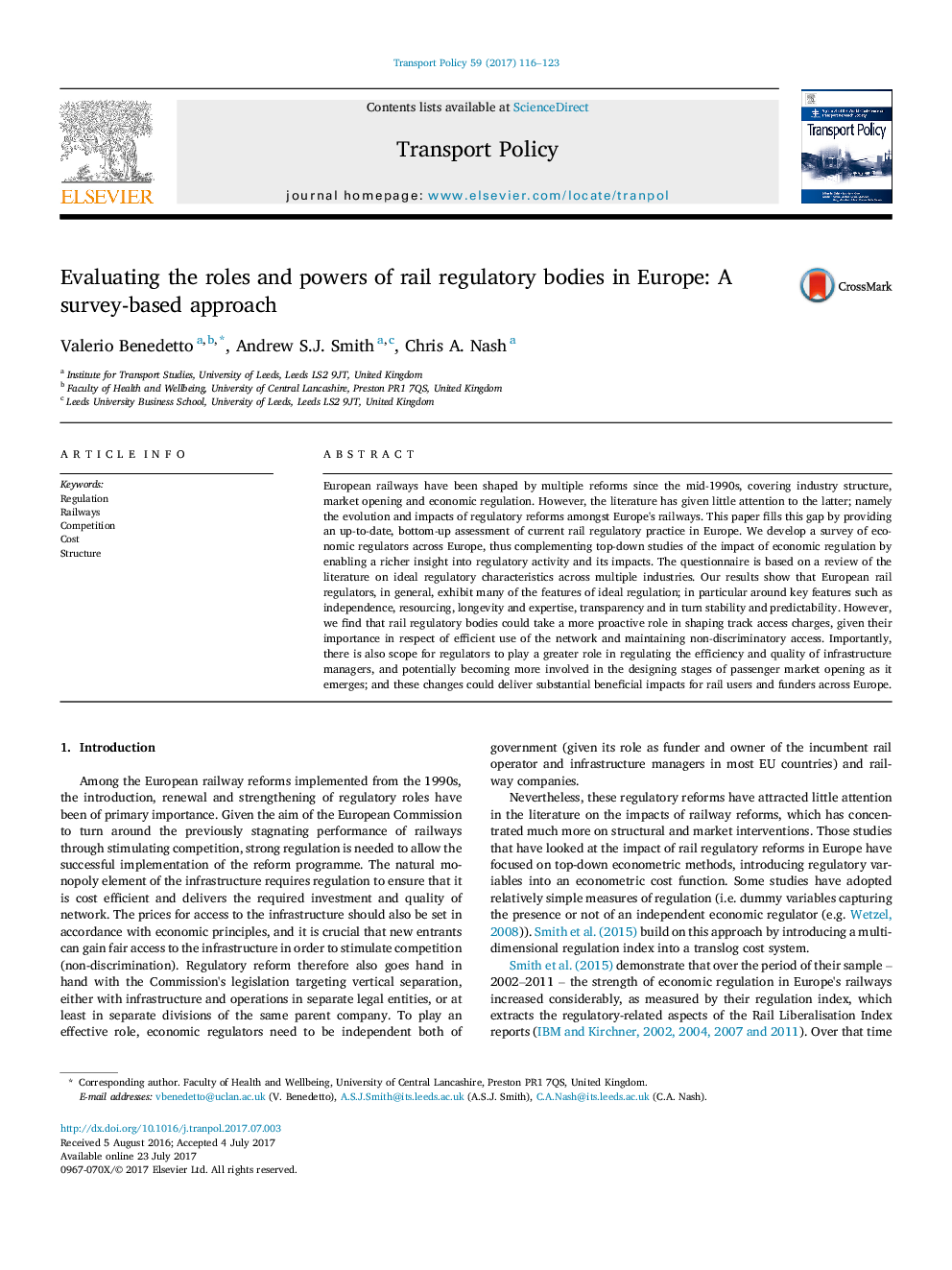| کد مقاله | کد نشریه | سال انتشار | مقاله انگلیسی | نسخه تمام متن |
|---|---|---|---|---|
| 5119138 | 1485818 | 2017 | 8 صفحه PDF | دانلود رایگان |
- Unique, up-to-date survey of rail regulatory practice in Europe.
- Bottom-up approach complements previous, top-down econometric methods.
- Theoretical basis to the survey: review of ideal regulatory characteristics from multiple sectors.
- Finds positive correspondence between rail regulatory practice in Europe and ideal regulation.
- Increased efficiency monitoring and market opening role suggested for regulators.
European railways have been shaped by multiple reforms since the mid-1990s, covering industry structure, market opening and economic regulation. However, the literature has given little attention to the latter; namely the evolution and impacts of regulatory reforms amongst Europe's railways. This paper fills this gap by providing an up-to-date, bottom-up assessment of current rail regulatory practice in Europe. We develop a survey of economic regulators across Europe, thus complementing top-down studies of the impact of economic regulation by enabling a richer insight into regulatory activity and its impacts. The questionnaire is based on a review of the literature on ideal regulatory characteristics across multiple industries. Our results show that European rail regulators, in general, exhibit many of the features of ideal regulation; in particular around key features such as independence, resourcing, longevity and expertise, transparency and in turn stability and predictability. However, we find that rail regulatory bodies could take a more proactive role in shaping track access charges, given their importance in respect of efficient use of the network and maintaining non-discriminatory access. Importantly, there is also scope for regulators to play a greater role in regulating the efficiency and quality of infrastructure managers, and potentially becoming more involved in the designing stages of passenger market opening as it emerges; and these changes could deliver substantial beneficial impacts for rail users and funders across Europe.
Journal: Transport Policy - Volume 59, October 2017, Pages 116-123
